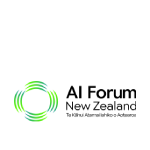The days of hospital specialists spending more time treating patients and less time processing referrals may soon be over.
The AI Forum of New Zealand’s recent health research report says tens of millions of dollars are being spent to come up with an artificial intelligence system to speed up processes in hospitals.
Triaging cardiologist referrals from GPs managing patient referrals has traditionally been a paper-based process.
The time-consuming manual process requires prioritising referrals according to urgency levels and protocol. Auckland company Precision Driven Health (PDH) is PDH is investing $38 million over seven years to personalise healthcare by running machine learning on data.
PDH is a research partnership between Orion Health, the University of Auckland and Waitemata District Health Board.
The AI forum’s report says the Waitemata DHB identified cardiologists were spending too high a proportion of their time triaging patient referrals and reviewing paperwork. Unsurprisingly, cardiologists would prefer to spend more time treating patients and less time processing referrals.
AI forum executive director Emma Naji says PDH aims to use transfer learning to reduce the time taken for hospital cardiologists to prioritise patient referrals from general practitioners.
Naji has taken over from Ben Reid at the AI Forum of New Zealand. She has had a 20-year entrepreneurial career including digital voice and recognition, drones and AI. She co-founded one of the earliest UK commercial drone companies and founded AI Advisory in NZ.
“Reducing the triage time allows cardiologists to spend more time with patients, reduce patient waiting time and improving delivery of the right treatment and care.
“Dr Edmond Zhang, a data scientist at PDH, is using different machine learning models on different data types, including images, scans, text-based data, and structured data such as laboratory test results.
“These outputs are combined into a unified model to triage patients. PDH will use 14,000 existing WDHB cardiology triage records to create the base machine learning model for this project.
“To complete the transfer learning aspect of the project, this base model will then be fine-tuned for other contexts. As at June 2019, PDH was midway through base model production and a functional triaging model for cardiologists should be ready later this year. Ultimately, PDH will develop the research outputs into a commercial platform.
“Orion Health’s smart data platform will enable clinicians to use these tools to support their decision making. PDH needed to gain data ethics approval as well as anonymising free text data.
“The benefits of using an AI platform include time and cost savings; combining multiple data sets means better insights; and transferring a base model to different specialisations and hospitals.”
For further information contact Make Lemonade news director Kip Brook on 0275 030188





